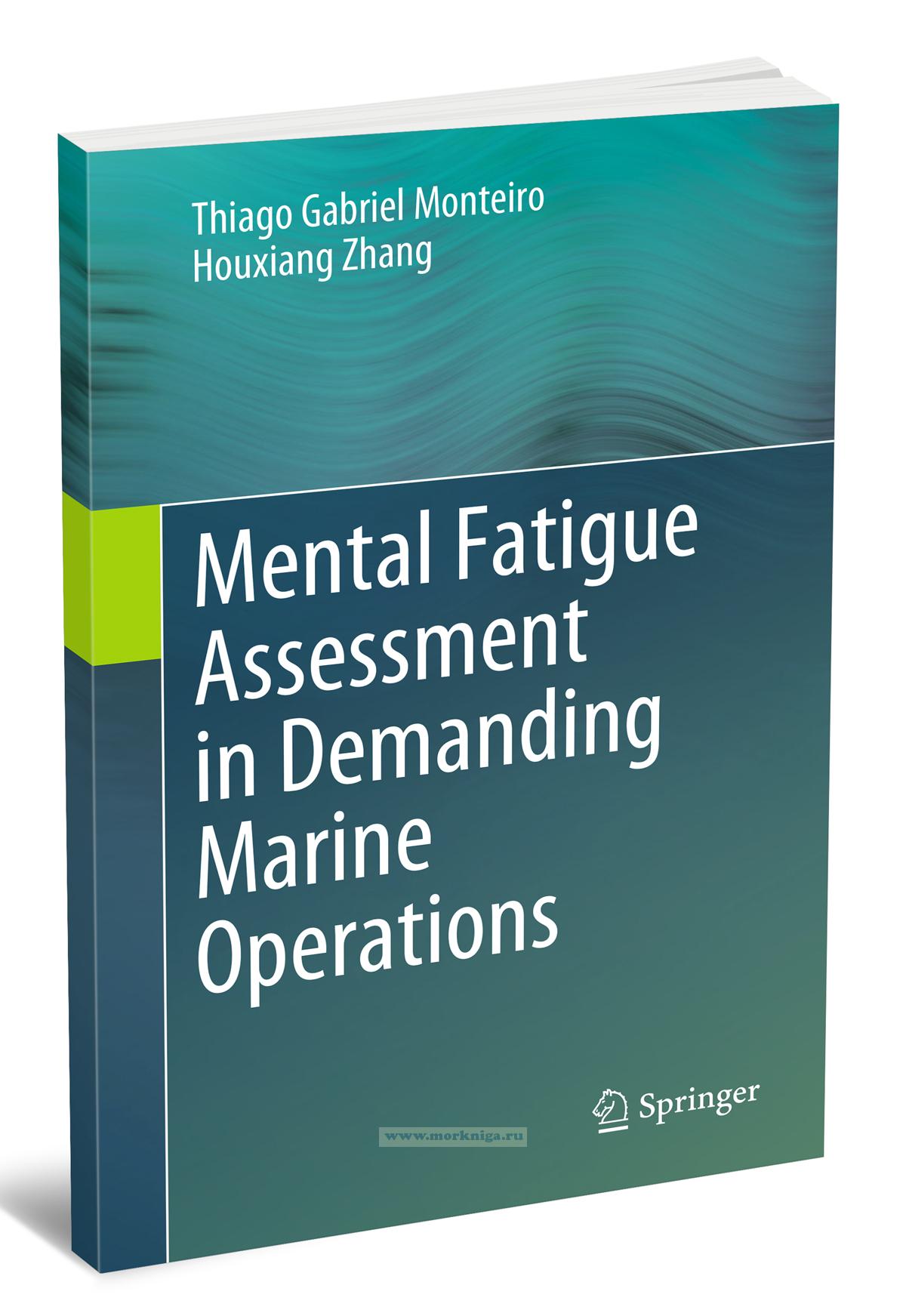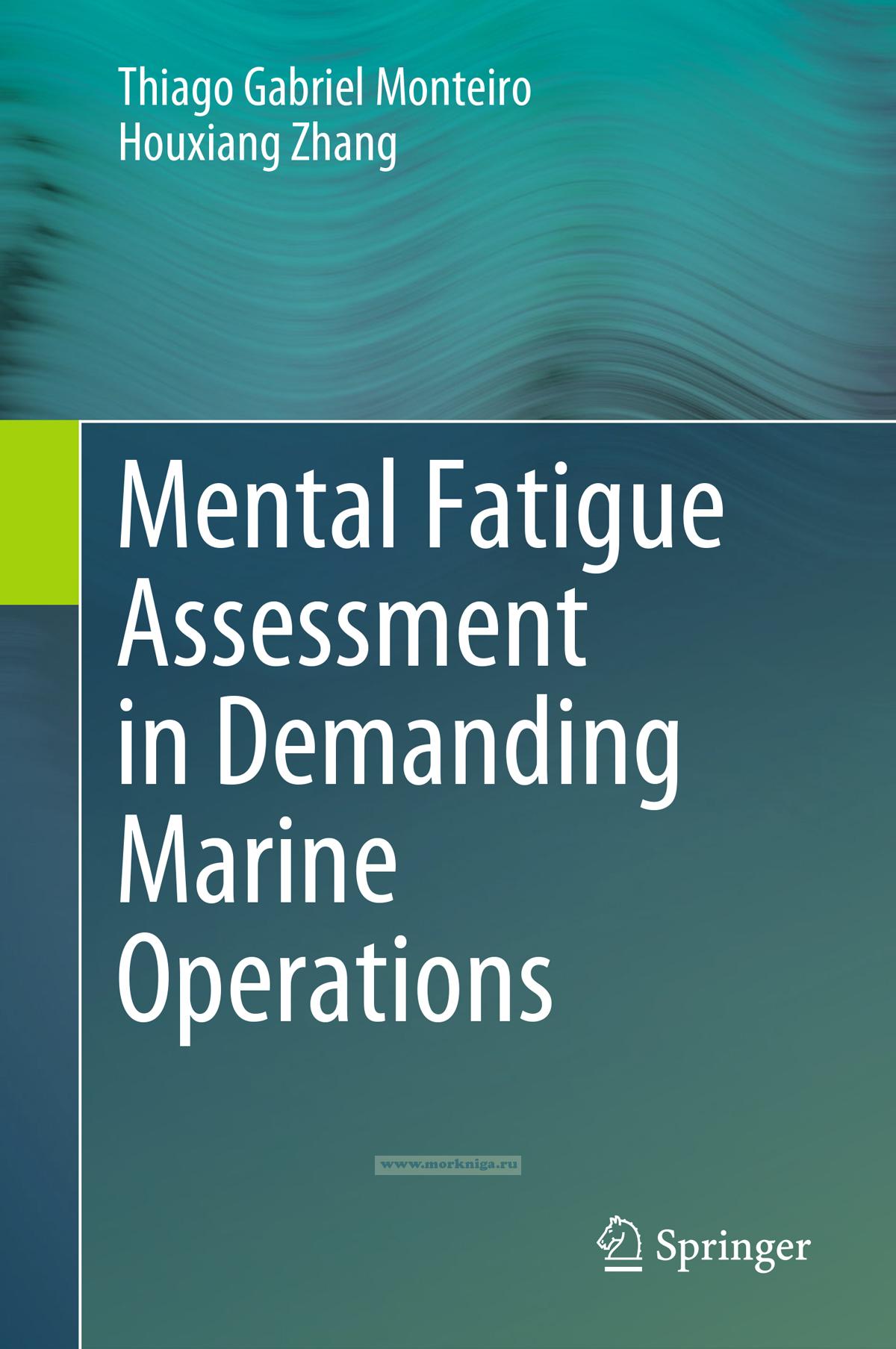Mental Fatigue Assessment in Demanding Marine Operations/Оценка умственной усталости при выполнении сложных морских операций
Издание на английском языке
A book dedicated to the study of how mental overwork (MF) can be objectively measured during complex maritime operations to improve safety. It highlights the importance of human operators in marine environments, despite advances in technology and ship exploration. The book suggests using physiological sensors such as ECG, EMG, EEG, temperature sensors, and eye trackers to collect data that correlate with MF levels. It discusses data-driven approaches, in particular the effectiveness of convolutional neural networks (CNNs) in MF estimation, and model-based methods using EEG data. The research is based on realistic ship modeling and is supported by various institutions and experts in the field. The ultimate goal is to develop real-time MF assessment methods to reduce risks and enhance operational safety in marine environments.
Contents
1 Introduction
1.1 The Relevance of the Human Factors in Maritime Accidents
1.2 Machine Versus Human Failure
1.3 Human Errors and Their Causes
1.4 Fatigue Assessment
1.5 Scope of Research
1.6 Book Outline
References
2 Handling Fatigue
2.1 Handling Fatigue
2.1.1 Fatigue Mitigation
2.1.2 Fatigue Recovery Monitoring
2.1.3 Fatigue Assessment
2.1.4 Fatigue Proofing
2.2 Leveraging Fatigue Assessment for Risk Management
References
3 Mental Fatigue Assessment Sensor Framework
3.1 Fundamentals of the Proposed Mental Fatigue Assessment Framework
3.1.1 Sensors Selection
3.1.2 Data Centralization
3.1.3 Data Collection and Preprocessing
3.1.4 Sensor Fusion
3.1.5 Mental Fatigue Assessment
3.2 State of the Art of Mental Fatigue Assessment Using EEG
3.2.1 Time Domain Methods
3.2.2 Frequency Domain Methods
3.2.3 Time-Frequency Domain Methods
3.2.4 Survey Analysis
3.2.5 Mental Fatigue Assessment Software
3.2.6 Warning Feedback
3.3 Experimental Procedure
3.3.1 Scenario-Based Experiment and Simulators
3.3.2 Questionnaires and Data Labeling
References
4 Mental Fatigue Assessment Using Artificial Intelligence
4.1 Comparing Different NN for Mental Fatigue Assessment
4.1.1 Data Collection and Preprocessing
4.1.2 Single Subject Analysis
4.1.3 Improving Classification Results
4.1.4 Cross-Subject Analysis
4.2 Improving Mental Fatigue Assessment by Optimization
4.2.1 Optimizing CNN Hyperparameters
4.2.2 Data Collection and Preprocessing
4.2.3 Single Subject Analysis
4.2.4 Cross-Subject Analysis
4.2.5 Optimization Variables Behavior
4.2.6 Assessing Mental Fatigue Level
4.3 Impact of Different Sensor Combinations on Mental Fatigue Assessment
4.3.1 Data Collection and Preprocessing
4.3.2 Results
4.4 Looking Inside the CNN
References
5 Model-Based Assessment for Multi-subject and Multi-task Scenarios
5.1 Mental Fatigue and the Maritime Domain
5.2 EEG and Frequency Band Analysis
5.2.1 Theta Rhythm (9)
5.2.2 Alpha Rhythm (a)
5.2.3 Beta Rhythm (в)
5.3 Material and Methods
5.3.1 Data Collection and Preprocessing
5.3.2 Mental Fatigue Assessment Approach
5.3.3 Experimental Procedure
5.4 Results and Discussion
5.4.1 Multi-subject
5.4.2 Multi-subject and Multi-task
5.5 The Impact of Different Tasks
References
6 Mental Fatigue Prediction
6.1 Measuring and Modelling Mental Fatigue Scenarios
6.1.1 Contributing Factors
6.1.2 Sensors
6.1.3 Mental Fatigue Prediction
6.1.4 Database of Previous Scenarios
6.1.5 Data-Driven Mental Fatigue Prediction
6.2 Modelling Mental Fatigue Progression
6.2.1 Time Dependant Mental Fatigue Progression
6.2.2 Distress Dependant Mental Fatigue Progression
6.2.3 Tunning Models
6.3 Simulating Mental Fatigue Scenarios
6.3.1 Management Tool
6.3.2 Planning Tool
6.4 Towards an Intelligent Model for Mental Fatigue and Human Error Prediction
References
7 Research Challenges
7.1 The Feasibility of EEG-Based Mental Fatigue Detection Systems
7.1.1 Cross-Subject and Cross-Session Mental Fatigue Detection
7.1.2 Computational Requirements
7.1.3 Portability
7.1.4 Intrusiveness
7.1.5 Number of Mental Fatigue States
7.1.6 Closed Loop System
7.2 Directions for Future Work
References

